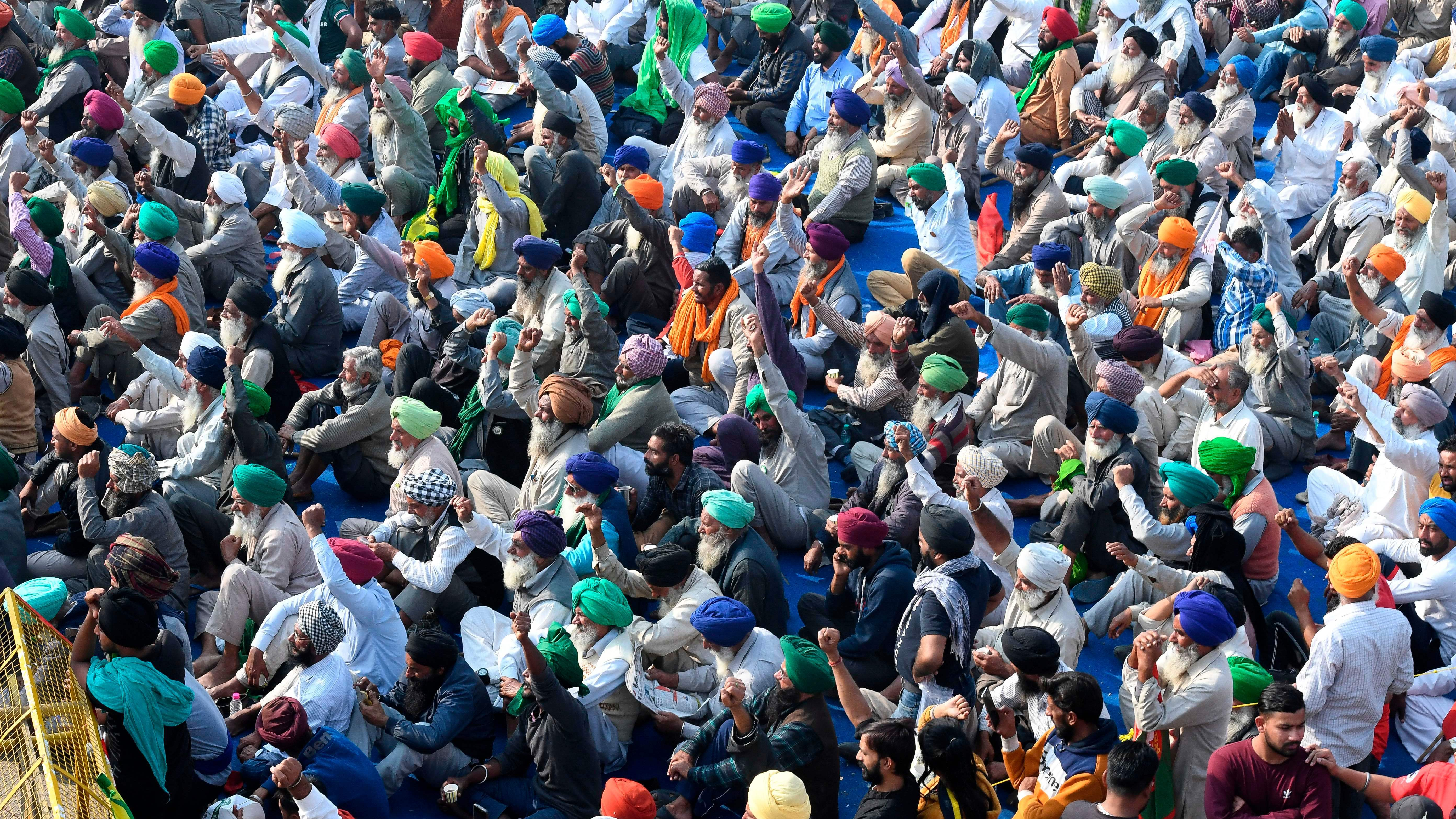This Is Why Thousands Of Farmers Are Protesting In India's Capital
There's a good chance you've seen the photos of the tens of thousands of farmers who have been forming miles-long protest lines in India's capital of New Delhi for a week now. But what prompted the protests, and is there any end in sight?
Here's the gist: the farmers are currently protesting new agricultural laws that could have disastrous consequences. CNN reports that farmers from the nearby states of Punjab, Haryana, and Uttar Pradesh began arriving at the outskirts of New Delhi last week, and countless more are on their way. That's because in September, Indian Prime Minister Narendra Modi passed new laws allowing farmers to set their own prices and sell directly to private businesses, like supermarket chains.
India's farmers say the new laws will make it easier for corporations to exploit agricultural workers. A lot of that has to do with Minimum Support Prices (MSPs), government-guaranteed prices that have served as a crucial safety net for farmers. In the past, farmers have also been required to sell their goods at auction at their state's Agricultural Produce Market Committee. But Modi's new laws dismantle both the committee structure and MSPs, which could prompt big companies to drive down prices. And yes, farmers could sell crops at elevated prices to meet demand—but oversaturated markets could also tank farmers' incomes.
The new laws come at a very, very bad time, since Indian farmers have already been struggling for years. CNBC reports that farmers have dealt with "low crop prices, rising costs, demonetization and widespread droughts," all of which may have contributed to a rise in farmer suicides. Thus far, Modi has shown no sign of capitulating to protesters' demands, although government officials will meet with farmer representatives today for the fourth time in an attempt to find a path forward.
